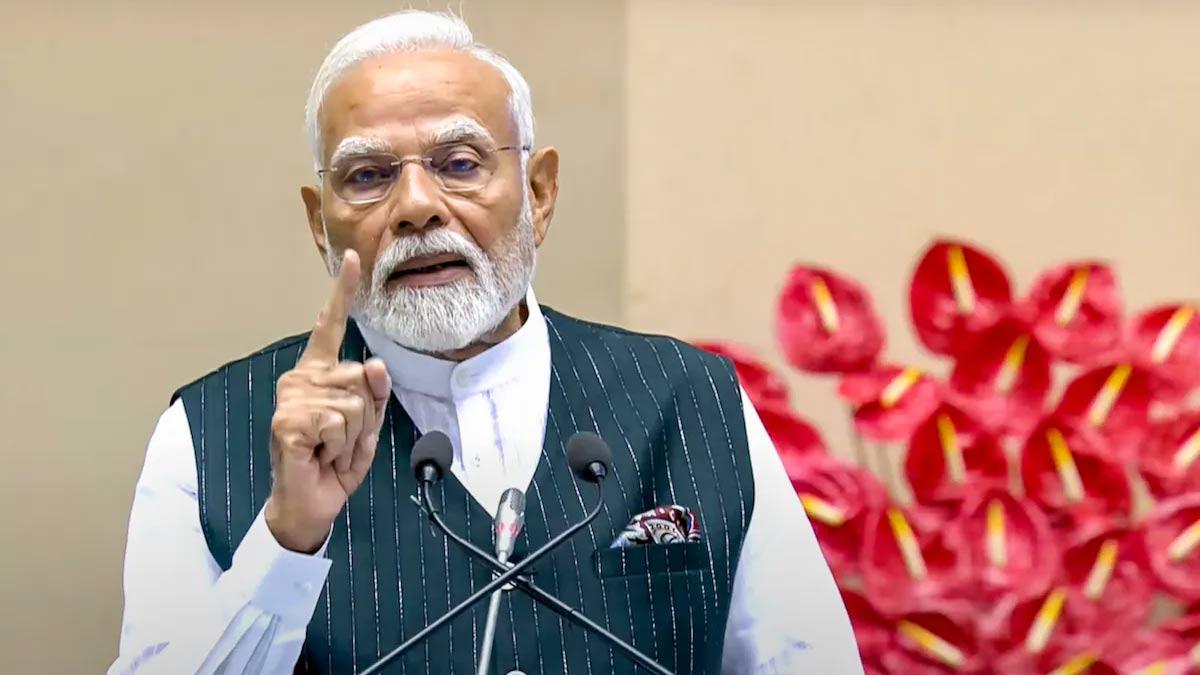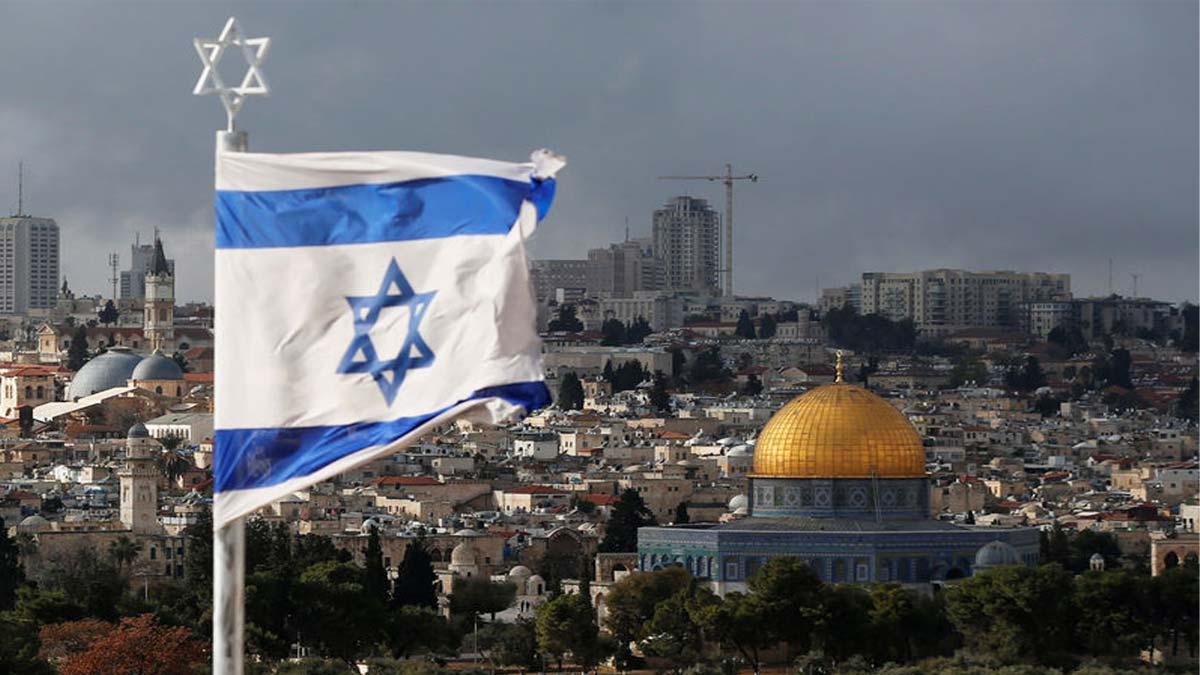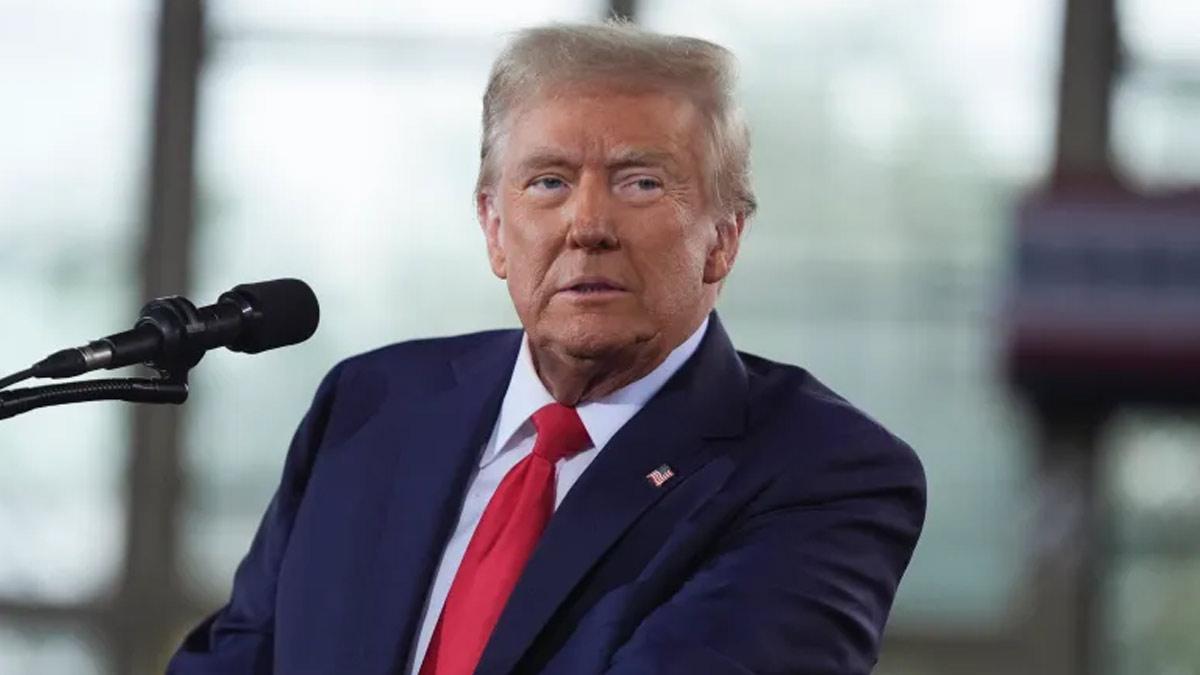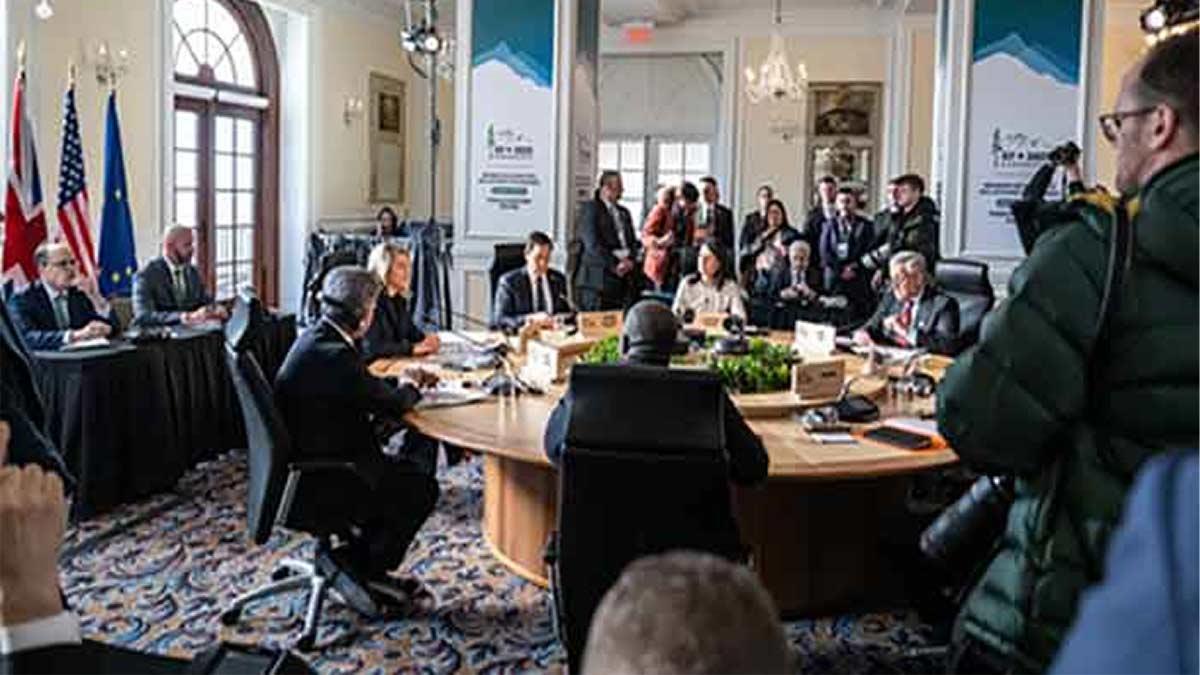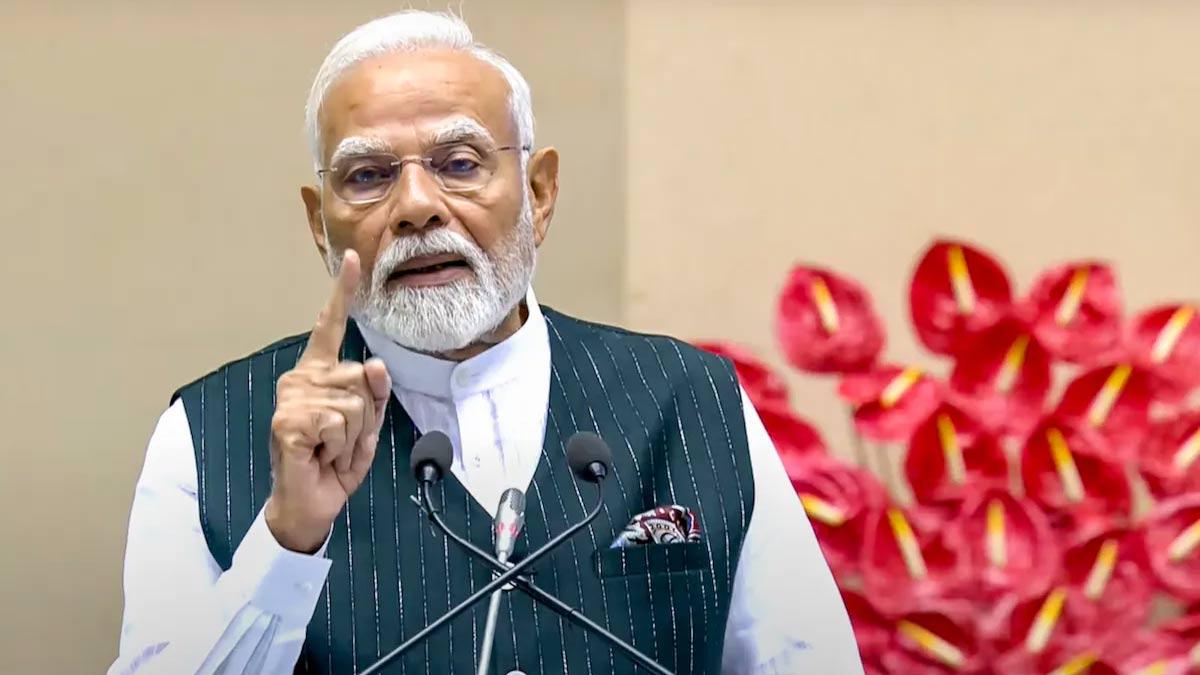Prime Minister Narendra Modi reached Kananaskis, Canada, on Monday evening (local time) to participate in the G7 Summit, where he is set to engage with global leaders on significant international challenges.
Among the key topics on the agenda are energy security, advancements in technology, and global innovation. This marks Modi’s first visit to Canada in ten years.
"Arrived in Calgary, Canada, to participate in the G7 Summit. Will be meeting different leaders at the Summit and articulating my views on vital global matters. Will also highlight the priorities of the Global South," Modi tweeted on X soon after reaching.
This trip is part of Modi’s ongoing four-day tour of three nations—Cyprus, Canada, and Croatia. He arrived in Canada from Cyprus at the invitation of Canadian Prime Minister Mark Carney, continuing the second leg of his diplomatic mission.
The Kananaskis gathering, taking place on June 16–17, marks Modi’s sixth consecutive appearance at the G7 Summit.
At the invitation of PM @MarkJCarney, PM @narendramodi reaches Alberta, Canada to attend the G7 Summit. PM will be attending @G7 deliberations on the future of energy security, including diversification, technology, infrastructure and investment, to ensure access and affordability in a changing world. PM will also have a few bilateral meetings on the side," Ministry of External Affairs spokesperson Randhir Jaiswal posted on X.
Apart from listening to the G7 debate, the Prime Minister has a number of bilateral meetings lined up. These are barely more than a month after India initiated Operation Sindoor against terror camps in Pakistan and Pakistan-occupied Kashmir in response to the April 22 attacks in Pahalgam.
Carney's invite to Modi is perceived as an indication of Canada's wish to turn the page on New Delhi after a period of tense relations over the killing of pro-Khalistani separatist Hardeep Singh Nijjar.
Last October, India also recalled its high commissioner and five diplomats from Ottawa after Canadian authorities tried to associate them with Nijjar's murder. Canada retaliated by expelling an equal number of its diplomats from New Delhi. India had accused the earlier Trudeau regime of providing leeway to pro-Khalistani movements on Canadian soil.
With economist Mark Carney assuming the office of Prime Minister in March, replacing Justin Trudeau, expectations of a diplomatic thaw have increased. India had been optimistic about resetting the bilateral relationship on the foundations of "mutual trust and sensitivity."
There has been renewed dialogue over the past few months between Indian and Canadian security officials, with talks said to be in progress to name new high commissioners in both countries.
Terming the two countries as "vibrant democracies," India's Ministry of External Affairs in a recent statement said it perceives the forthcoming meeting between Modi and Carney on the sidelines of the G7 as an important opportunity to exchange views and identify means to give the relationship a new push.
Modi had last come to Canada in 2015, a visit that promoted the bilateral relationship to the level of a strategic partnership.
Figures of trade between the two nations highlight the economic importance of their relationship. In 2024, two-way trade in goods amounted to USD 8.6 billion with India's exports valued at USD 4.2 billion and imports worth USD 4.4 billion. In the services sector, bilateral trade was worth USD 14.3 billion with Indian exports worth USD 2.5 billion and imports worth USD 11.8 billion.
The G7 meeting takes place in the context of an intensified global tensions, including ongoing hostilities between Iran and Israel and trade tensions triggered by U.S. tariff policies under former President Donald Trump.
Canada took over the G7 rotating presidency on January 1, 2025, as the organization celebrates its 50th anniversary this year. The G7 includes the world's most advanced economies: France, the United States, the United Kingdom, Germany, Japan, Italy, and Canada, with the European Union joining it. The summit offers an opportunity to tackle large economic and geopolitical issues.
India, the world's fifth-largest economy today, has become a frequent visitor at the G7's Outreach meetings, having participated in eleven such events, including in France (2003, 2019), the UK (2005, 2021), Russia (2006), Germany (2007, 2022), Japan (2008, 2023), Italy (2009, 2024), and now again in 2025.
Outreach Segment of this year's 51st G7 Summit is likely to include only one session in which urgent international concerns—including Ukraine's war and West Asia's turmoil—are going to be at the core of discussion.
Canada has a significant Indian-origin population, constituting about 4.5% of the total, comprising some 1.8 million Indians, of which some 770,000 are Sikhs, and 1 million Non-Resident Indians consisting of students, professionals, and temporary workers.
Traditionally, Indian students have comprised the majority of foreign students in Canada, at 41% in 2022. Recent shifts in immigration policy have since impacted the number of Indian students entering Canada, both influencing their prospects and the economic positioning of Canadian educational institutions.
Read also| Global Economy and Energy Security Top Agenda at G7 Summit

